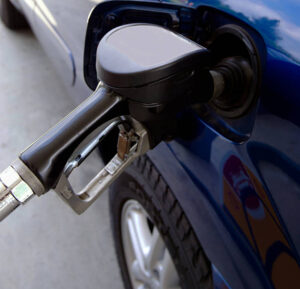
In this current economy time where fuel prices can fluctuate unpredictably, finding ways to save on car fuel consumption is more crucial than ever. Efficient driving habits, vehicle maintenance, and smart choices can all contribute to lower fuel expenses and a smaller carbon footprint. Here are ten practical tips to help you save fuel and keep more money in your pocket.

1. Maintain Proper Tire Pressure
Underinflated tires can significantly reduce fuel efficiency. When your tires are not properly inflated, they create more resistance against the road, forcing your engine to work harder and consume more fuel. Check your tire pressure regularly, ideally once a month, to ensure they are at the manufacturer-recommended levels.
2. Reduce Excess Weight
The heavier your car, the more fuel it needs to move. Extra weight can come from carrying unnecessary items in your trunk or backseat. By decluttering your vehicle and removing heavy items that you don’t need, you can improve your car’s fuel efficiency.
3. Avoid Aggressive Driving
Rapid acceleration, speeding, and hard braking are fuel wasters. Instead, practice smooth driving by accelerating gradually and anticipating traffic conditions to avoid unnecessary stops and starts. Not only does this save fuel, but it also reduces wear and tear on your vehicle.
4. Use Cruise Control on Highways
Cruise control helps maintain a constant speed, which can improve fuel efficiency on long highway drives. By avoiding the variations in speed that come from manual driving, you reduce the engine’s workload, leading to better fuel economy.
5. Plan Your Trips Efficiently
Combining errands into one trip and avoiding rush-hour traffic can help you save fuel. Cold engines use more fuel, so several short trips starting with a cold engine can use up to twice as much fuel as a single longer trip. Planning your route to avoid heavy traffic and idling also contributes to fuel savings.
6. Limit Air Conditioning Use
Air conditioning puts extra load on your engine, leading to higher fuel consumption. On cooler days, consider using your car’s ventilation system instead. When driving at lower speeds, it’s more fuel-efficient to open the windows, but at highway speeds, using the A/C is better as open windows create drag.
7. Keep Your Engine Tuned
A well-maintained engine runs more efficiently. Regular engine checks and maintenance, such as replacing air filters, spark plugs, and ensuring your car’s oxygen sensors are functioning correctly, can lead to significant fuel savings. A poorly tuned engine can consume up to 50% more fuel than one that is running properly.
8. Use the Right Motor Oil
Using the manufacturer-recommended grade of motor oil can improve your fuel efficiency by 1-2%. Higher-quality motor oils that contain friction-reducing additives can also help, but always consult your vehicle’s manual before making a switch.
9. Minimize Idling
Idling consumes fuel without moving your car, which is the epitome of wasted energy. If you anticipate being stopped for more than a minute, such as at a train crossing or in a parking lot, it’s more fuel-efficient to turn off your engine.
10. Drive a Fuel-Efficient Vehicle
If you’re in the market for a new car, consider purchasing a fuel-efficient vehicle. Hybrid and electric vehicles, or those with smaller engines, offer substantial fuel savings. Even within traditional gasoline vehicles, models with better fuel economy can make a big difference in your overall fuel consumption.
Finally we believe by adopting these ten strategies, you can significantly reduce your car’s fuel consumption, save money, and contribute to a greener planet. Consistent small changes in your driving habits and vehicle maintenance can lead to long-term savings and a more efficient, environmentally friendly driving experience.
